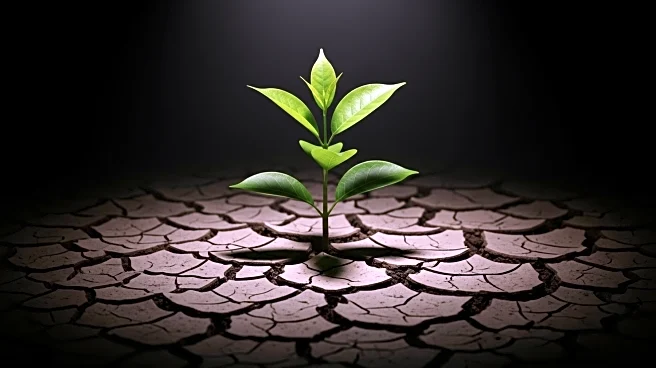What's Happening?
The Environmental Protection Agency (EPA) is grappling with significant challenges due to a government shutdown during President Trump's second term. The agency, already impacted by staff cuts and policy shifts towards deregulation, is now operating with minimal staff and funding. The shutdown raises concerns about the EPA's ability to fulfill its mission of protecting America's health and environment. Critics, including former EPA officials, warn that the lack of oversight could lead to increased pollution as industries may exploit the situation. The EPA's shutdown plan indicates a halt in non-criminal pollution inspections and other critical functions, potentially endangering public health.
Why It's Important?
The shutdown of the EPA during a period of deregulation under the Trump administration has significant implications for environmental protection and public health in the U.S. The agency's reduced capacity to enforce regulations could lead to increased pollution, affecting air and water quality. This situation underscores the tension between federal environmental policies and state-level initiatives, as well as the broader debate over the role of government in regulating industries. The potential increase in pollution could have long-term health impacts, particularly in communities near industrial sites.
What's Next?
The EPA's ability to resume full operations depends on the resolution of the government shutdown. In the meantime, environmental groups and state governments may increase their efforts to monitor pollution and advocate for stronger environmental protections. The situation may also prompt discussions in Congress about the funding and priorities of the EPA, especially in the context of ongoing debates about climate change and energy policy.
Beyond the Headlines
The shutdown highlights the broader issue of how political changes can impact regulatory agencies and their ability to protect public health and the environment. It raises questions about the balance between economic growth and environmental protection, and the role of federal agencies in enforcing regulations. The situation may also influence public opinion and voter priorities in upcoming elections, particularly regarding environmental policies.









